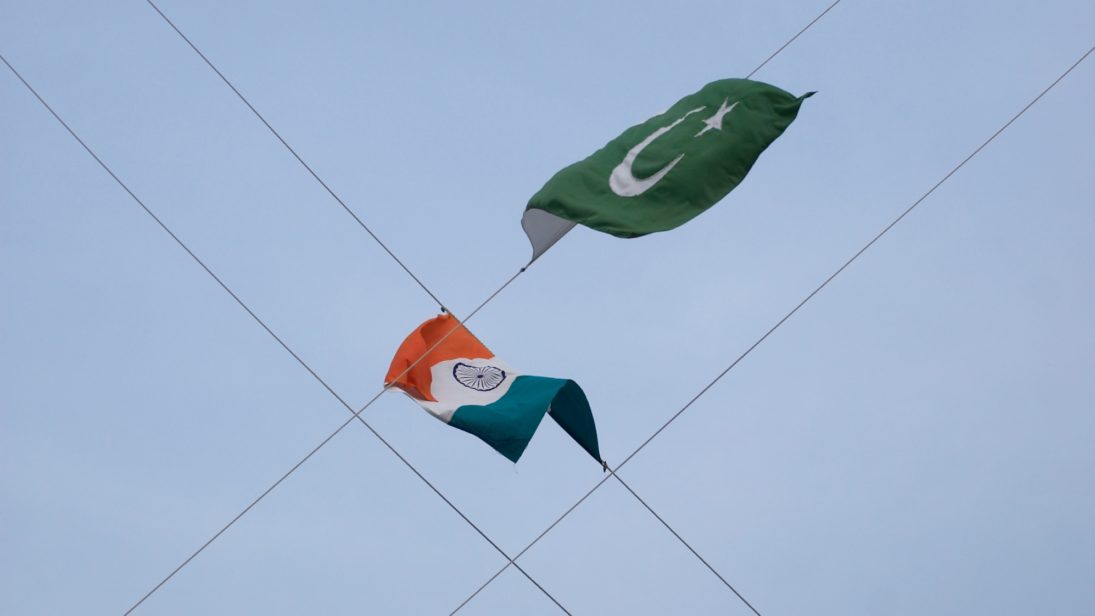
The media in India and Pakistan, more so the electronic media, examine the bilateral relationship from a security lens, with jingoism and shrillness being a hallmark – especially of the electronic media. Seldom is space devoted to important developments in the realm of culture and heritage which could play a positive role in the relationship between both countries.
On September 8, 2015, for instance, the Punjab Government passed a resolution to rename roads and memorials after Maharaja Ranjit Singh, a Sikh ruler. This was only after the issue was raised by a Member of the Provincial Assembly, Ramesh Singh Arora, belonging to the ruling PML-N (who happens to be a Sikh) to name roads and monuments after a Sikh ruler. This issue received no coverage in the Indian media (print or electronic). While in the Pakistani print media it did receive space, it was mentioned more as a footnote along with other resolutions.
Maharaja Ranjit Singh (1780-1839), the founder of the Sikh empire which lasted from 1799-1849, ruled from 1801 to 1839 and is also referred to as Sher-E-Punjab (Lion of Punjab). He is relevant today for his strategic acumen, which has been recognized by a number of analysts, in India and Pakistan, but also in the region.
Ayaz Amir, a politician and prominent Pakistani columnist makes an interesting point:
“Another thing to remember about the Lion of Punjab (the only lion, others all fake and imitations) is that he knew how to handle his Afghan problem. He defeated the Afghans and took Peshawar from them. Peshawar was part of the Sikh dominions annexed by the British. So if Peshawar and its environs are a part of Pakistan today it is because of that earlier Sikh conquest, half-forgotten in the mists of time.”
Apart from but the above points, it would also be important to make mention of the point that in spite of being a Sikh ruler he did not discriminate against members of other communities, and was the harbinger of Punjabiat or a common Punjabi identity.
One clear reiteration of this point is the fact that the Fakir Azizuddin along with his other two brothers was amongst Maharaja Ranjit Singh’s most trusted advisors. Azizuddin handled all issues pertaining to foreign affairs. Fakir Aijazuddin (who belongs to the Fakir family) has illustrated this point in a number of writings and books. His latest book, The Resourceful Fakirs – Three Muslim Brothers at the Sikh court of Lahore, reiterates this point while narrating accounts of visitors to Maharaja Ranjit Singh’s court. For instance, Aijazuddin quotes the views of Victor Jacquemont, a French visitor to the Maharaja’s court, who while commenting on the proximity of the Fakir brothers to the Maharaja said:
“Among his most intimate councilors are three Mohammadan brothers, who conceal their wealth under an outward appearance of poverty and seek to atone for their intrusion by the humility of their behavior. All of them bear the title of ‘Fakir,’ as do their sons. They know Arabic and have read the medical books in that language, hence their reputation for deep scientific knowledge. The eldest, whom I met near Amritsar, is more or less the minister for foreign affairs; it is he who writes all the dispatches from Ranjit to the British government. Another is the trusted agent at Govindgarh. The third, whom I meet every day, is sometimes appointed governor of the city, when Ranjit does not take him away with him. These brothers have a cipher which they use in correspondence among themselves and this artifice, hitherto, I believe, unknown in the East, gives them a reputation for great cleverness.”
While the recognition of Maharaja Ranjit Singh by the Pakistani government is important for the reasons which have been discussed above, it is also important to point out that acknowledging a personality who was not Muslim, and who for a long period of time has been omitted from the country’s history, is significant. One of the major reasons for the rising intolerance in Pakistan can be attributed to a skewed view of history, where in an urge to create a cohesive Pakistani identity, some important personalities of the region belonging to other religions have been ignored or relegated to the sidelines.
A number of publications have flagged this issue. For example, AH Nayar and Ahmad Salim, the editors of “The subtle subversion: the state of curricula and textbooks in Pakistan,” have pointed to the inaccuracies of creating a false sense of nationhood and thereby fostering intolerance. Prominent public intellectuals like Aitzaz Ahsan, a senior politician and lawyer and the author of Indus Saga: From Pataliputra to Partition and Ayaz Amir have spoken in favor of recognizing common heroes of India and Pakistan in general, and the two Punjabs in particular, as opposed to looking to the Middle East. Raza Rabbani, now Chairman of the Pakistan Senate, has also flagged this issue and stated that teaching Pakistani students about figures like Maharaja Ranjit Singh would not harm Pakistan in any way.
While naming monuments or roads after Maharaja Ranjit Singh may not help either in improving bilateral relations or countering radicalism in Pakistan, similar steps will go a long way in sending an unequivocal message: that sane elements are willing to take steps for altering the current narrative. Not only is giving minorities a stake in Pakistan’s national project important, but so is taking a more rational, dispassionate view of history something which has been missing for a long time.
***
Tridivesh Singh Maini is a Senior Research Associate with The Jindal School of International Affairs, OP Jindal Global University, Sonepat, India.
Disclaimer: Views are personal
***
Image: My Past, Flickr


